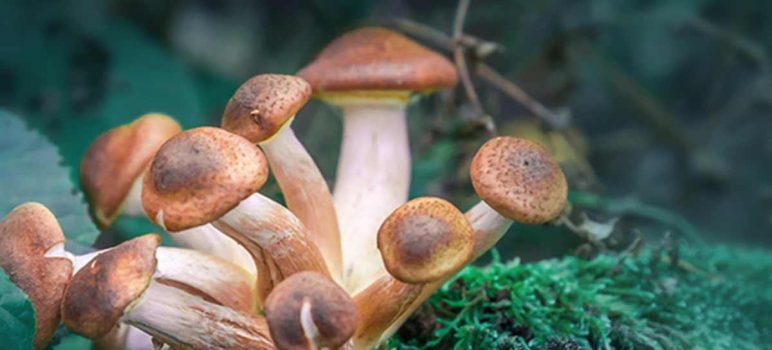Most advocates for drug law reform felt a sense of relief over Joe Biden’s defeat of Donald Trump for the presidency and were buoyed by the legalization of weed around the country. Now some California lawmakers want to take the win and run a little bit further: decriminalizing psychedelic drugs, too.
From a wider perspective, it seems like Election Day 2020 marked a turning point for reform, with voters in several states, including conservative strongholds like South Dakota and Montana, legalizing cannabis for adult use.
On top of that, and perhaps even more remarkably, voters in Oregon and the District of Columbia voted to legalize or decriminalize psychedelics.
Inspired in part by these developments, California Sen. Scott Wiener announced on Twitter last week he would try to move the state in the same direction.
“When the Legislature reconvenes, I’ll introduce legislation to decriminalize psychedelic drugs,” he said. “These drugs have been shown to have medicinal value treating depression, PTSD & other conditions.”
The wave of reform is holistic. That is, the arguments have gone from “weed is relatively harmless, so let’s just legalize it” to “arresting people for drug use has destroyed millions of lives and cost billions of dollars, so let’s stop doing it.” Wiener said as much, tweeting: “We need to stop criminalizing drug use & addiction.”
Oregon voters by a 56-44 majority legalized the use of psilocybin—that is “magic mushrooms”—for therapeutic use in “supervised, licensed facilities.” Voters also voted to decriminalize the possession of the substance.
First will come a “two-year development period,” during which the state will devise a regulatory scheme for administering psilocybin. That's not an easy task. Unlike cannabis, psychedelic mushrooms and other hallucinogens, like peyote and LSD, are powerful drugs, and can be downright dangerous if not used with great care.
At the same time, recent research has revealed that, in small doses, they can be equally powerful agents for treating a range of mental and emotional maladies.
They also are thought by some shamanistic types to enable spiritual awakening. And yes, for “recreational” users, they can be lots and lots of fun—but proponents of loosening the laws tend to gloss over that last point, for understandable reasons.
Oregon is the first state to decriminalize or legalize hallucinogens (D.C. voters overwhelmingly decriminalized psilocybin and other entheogenic substances), but that’s an expansion of a trend of cities doing so.
Denver did it last year, followed quickly by the Oakland City Council, which heard witness after witness testify about the positive effects of the substances. “They saved my life,” one man said. The Santa Cruz City Council followed suit in February.
Though momentum seems to be gaining, drug law reform advocates are disappointed that Democrats lost some House seats and might have failed to take back the Senate. Runoff elections in Georgia in January will determine control of the upper body, where in recent years, drug reform goes to die.
Wiener, who represents San Francisco and parts of San Mateo County, said he is working with Assembly members Evan Low, who represents the South Bay and Silicon Valley, and Sydney Kamlager-Dove, who represents a big chunk of Los Angeles, to craft legislation to be debated in the coming year.
In the meantime, Americans—weirdly, perhaps, to those of us of a certain age—seem to be coming around to accepting cannabis and hallucinogens. That’s thanks in no small part to the work of Michael Pollan, the popular, Berkeley-based author and journalist whose books about food have had a major impact on the American diet.
His recent book, How to Change Your Mind: What the New Science of Psychedelics Teaches Us About Consciousness, Dying, Addiction, Depression and Transcendence, has ended up on the coffee tables of suburban, middle-class people across the country.
As a result, Pollan has been widely, and somewhat erroneously, described as an “advocate” of hallucinogenic drug use. He supports decriminalization, and the careful use of the substances for therapy. But he draws the line at legalization and the creation of a shroom industry similar to the pot business.
“The risks of unsupervised psilocybin use are considerable, and of a different order than the risks of cannabis,” he wrote last year. Government officials, take note: this won’t be as simple as legalizing weed.


UBI + Weed + Shrooms.
Nice.
Well if Scott Weiner continues to keep cramming legislation down our throats for his developer and corporate friends to build whatever and wherever they want without regard to the communities impacted – the least he can do is let us use drugs to help us forget and escape. Him and his friends continue to get rich and we get to drop out. Or maybe his plan is reverse – let us all drop out so we don’t pay attention to what he and his friends are up to.
Legalize Meth. San Jose’s drug of choice.
“Most advocates for drug law reform felt a sense of relief over Joe Biden’s defeat of Donald Trump for the presidency…” — Dan Mitchell
Blacks voting for Blacks, Browns for Browns, Gays for Gays, Women for Women, and now the cognitively-impaired (not to mention the dead-and-buried) voting for the cognitively-impaired (and soon-to-be dead-and-buried) Biden.
Aide: “Mr. President, our air defenses report large numbers of missiles incoming from China.”
Biden: “Okay, make sure Hunter’s deposited my cut.”
Phu, have you read the book mentioned in this article, “How to Change Your Mind?” It’s a fascinating read. You’d probably appreciate it.